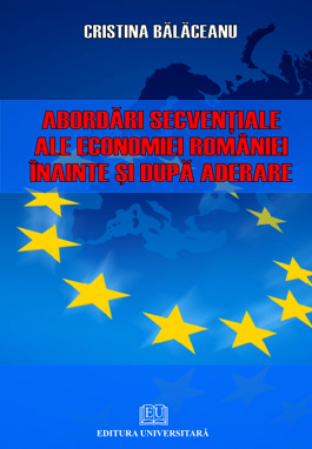ISBN: 978-606-591-284-7
Publisher year: 2011
Edition: I
Pages: 411
Publisher: Editura Universitară
Author: Constantin Chirila, Aurel Lup
- Description
- Download (1)
- Authors
- Reviews (0)
Rural economy and management in agriculture not only replace the name equivalent disciplines from plan economy, agricultural economy and that organization and management of agricultural enterprises.
For four decades (1950-1990), agriculture was organized and managed at all levels and excessively structured centralized planned economy principles. At the beginning of each year occur in the Law on Agriculture Unique Plan were provided: the structure of crops, livestock yields, total production plant and animal production costs, prices, sales production - mandatory state commercial units, the level of remuneration , everything, everything.
This was actually the Communist Party policy in agriculture, and all personnel from the minister the last worker had only a duty to carry out the plan, ie the law without any real freedom of decision.
We'll add that all this system of organization and management of agriculture in recent years has kept up the former USSR footprint model with two types of basic agricultural units kolkhoz - collective farm (later improperly called cooperative) and sovkhoz (later agricultural enterprise state).
The transition to a market economy is also a political decision in historically a return to the previous economic system of the second world war but this time not without influence in western Europe.
Otherwise economic categories - resources (land, capital, labor) or specific concepts such as revenue, costs, profit, productivity, retains its meaning and the same functions.
The work plan includes the entire theme of teaching discipline that is taught at universities in the field in Romania: Bucharest, Cluj, Iasi and Timisoara. In addition the authors consider appropriate to provide students first and a wider public, specialists and not only a historical view on the evolution of agrarian economic thought both in Romania and internationally.
Drafted in 2011, the course includes statistical data, comment on the author's own view latest information and documents on the organization, management, and elements of the cultural sector.
Structure is conceived dynamically evolving historical material is grouped into three distinct parts:
a) The historical period in which the concept of temporal and spatial agrarian economy evolves according to the type of global economy, by geographical area and not least according to the political regime (from the beginning to the end of the Second World War) ;
b) The period of planned economy based on Marxist doctrine on which were established economic models imported from the former USSR (1945-1989).
c) The period of transition to market economy practiced before the Second World War, but with adaptations, opportunities, and restrictions imposed by the European Union's agricultural policy and the deepening globalization of the economy.
The course is aimed primarily at students of agricultural and horticultural specialties, agronomists and horticulturists that future.
The authors consider appropriate historical approach, the introduction of numerous footnotes designed to extend their knowledge of the phenomenon of rural-agricultural.
Naturally, any such approach, the course is likely improvements, updates, comments that the authors take into account the following editions.
Finally, the authors thank their APIS TOMITANA DACIAN Association for financial support.
The authors,
-
Economie şi politică rural-agrară
Download
Ph.D. in Agricultural Economics.
Associate Lecturer, Faculty of Natural and Agricultural Sciences University, Ovidius "of Constanta for economic discipline and rural policy.
President, Vice President, an expert in matters of economic management andaccounting of several different institutions and bodies at national or local profiles.
Author or coauthor of a number of four books and numerous articles published in professional journals.
Member of the Romanian Parliament, member of the Committee on Agriculture.
Member of Parliamentary Commission of Inquiry on the situation of irrigation systemsand other land reclamation sectors (2009).
Aurel Lup
Professor at the Faculty of Natural and Agricultural Sciences University,, Ovidius "ofConstanta for Rural and Management disciplines in agriculture.
Associate member of the Academy of Scientists in Romania.
Author or first author of a number of 10 books and over 170 articles published in professional journals.
Laureate Ion Ionescu de la Brad Romanian Academy.
Member of the Presidential Commission for Public Policy and Agricultural Development in Romania (2009-2011).
Wizard of parliamentary committees of inquiry on the situation of irrigation systemsand other areas of land reclamation (2009).

6359.png)
![Rural-agrarian economy and politics [1] Rural-agrarian economy and politics [1]](https://gomagcdn.ro/domains/editurauniversitara.ro/files/product/large/economie-i-politic-rural-agrar-1834-211455.jpg)



